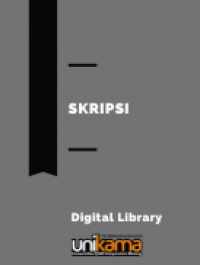
Electronic Resource
An Analysis Of Illocutionary Act On Movie “17 Again”
People always use conversation in their communication with others. They can communicate their ideas, feeling or opinion towards their hearer. Moreover, they want their hearer interpreted. Their utterances are purposed the hearer can react as what they are expected to do that includes illocutionary act. The work of illocutionary act is also seen in conversation of script movie. Most movies express human idea or opinion about something. It is related to Linguistic where the humans covered their idea or opinion with utterance that has specific meaning. So, the purpose of this study is to get the kinds of illocutionary act and to reveal the percentages of occurrence of illocutionary act that used in “17 Again” movie script. Movie script is a screenplay or script, it is a written work by screen writers for a movie or television program. This study is focused on movie script and five kind of illocutionary act. Illocutionary act is called by The Act of Doing something. There are five classifications of illocutionary which are representatives, directives, commissives, expressives and declaratives. This study also employed descriptive qualitative research since the researcher explored the problems and the data were collected in the form of words. The main instrument in this study is the researcher herself.
The researcher found four types of illocutionary act, they were representatives (asserting, suggesting, claiming, complaining, exemplifying, and reporting), directives (inviting, ordering, requesting, commanding, recommending, and advising), commissives (promising, vowing, threating and offering), and expressives (asserting, suggesting, claiming, complaining, exemplifying, and reporting). In this analysis, the researcher does not find utterances that include in declaration.Representatives commit speaker (S) to the truth expressed proposition. The propositional content of directives is always that the hearer (H) does some future action A (act). The propositional of commissives content is always that the speaker S does some future action A. The truth of the proposition expressed in an expressive is presupposed.
From the analysis result, the researcher hopes that this research could be useful for everyone such as the teachers, students and further researcher who wants to either learn or conduct research about illocutionary act. Thus, she hopes that this study will give a lot of information and explanation especially about illocutionary act and it could be a reference for further researcher in the same field and explore in a different aspects in order to make extend and sharpen understanding illocutionary act.
Ketersediaan
| 2118824/SB/2015 | KKI 420 HUT a/s | Perpustakaan Unikama | Tersedia |
Informasi Detail
- Judul Seri
-
-
- No. Panggil
-
KKI 420 HUT a/s
- Penerbit
- Malang : Pendidikan Bahasa Inggris-Unikama., 2014
- Deskripsi Fisik
-
x, 121
- Bahasa
-
English
- ISBN/ISSN
-
-
- Klasifikasi
-
420
- Tipe Isi
-
text
- Tipe Media
-
PDF
- Tipe Pembawa
-
-
- Edisi
-
-
- Subjek
- Info Detail Spesifik
-
-
- Pernyataan Tanggungjawab
-
-
Versi lain/terkait
Tidak tersedia versi lain
Lampiran Berkas
Komentar
Anda harus masuk sebelum memberikan komentar
 Karya Umum
Karya Umum  Filsafat
Filsafat  Agama
Agama  Ilmu-ilmu Sosial
Ilmu-ilmu Sosial  Bahasa
Bahasa  Ilmu-ilmu Murni
Ilmu-ilmu Murni  Ilmu-ilmu Terapan
Ilmu-ilmu Terapan  Kesenian, Hiburan, dan Olahraga
Kesenian, Hiburan, dan Olahraga  Kesusastraan
Kesusastraan  Geografi dan Sejarah
Geografi dan Sejarah